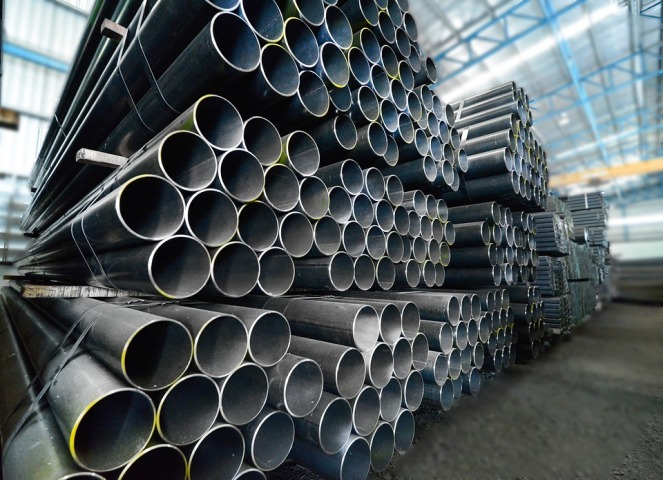Steel industry to suffer loss in Q4 with low prices, high input costs: Report

- Country:
- India
Following the rise in the input cost, domestic steelmakers may have to grapple with a higher cost of production in the fourth quarter of FY19, a report said. The operating profitability of the industry during the period is likely to remain under check due to a further increase in input costs and sequentially lower steel prices, Icra said in its report.
On the domestic front, the agency said, steel consumption growth improved marginally to 7.9 per cent in April-December FY19 from 7.8 per cent in H1 FY19, supported largely by a pick-up in construction activities, notwithstanding an easing in demand from the automobile sector, which faced headwinds during Q3 FY19 in the form of a liquidity crunch and increased fuel prices. "Continued thrust on infrastructure spending by the government, the increased budgetary outlay for railways and roads, as well as recent policy support to the real estate sector, augur well for domestic steel demand in the near-to-medium term," Icra stated.
It further said that despite a sharp 40 per cent contraction in steel exports during Q3 FY19, supportive domestic demand conditions led to an improvement in the steel production growth to 4.7 per cent in 9-months of FY19 from 4.4 per cent in H1 FY19. "Although domestic hot-rolled coil prices are currently trading at a premium over imported prices which were contracted earlier, recent input cost-driven increase in international prices would make steel imports costlier in the coming months, and in turn support domestic steel prices in the near term," its senior vice-president Jayanta Roy said.
Globally, the agency noted, subsequent to the rally in seaborne iron ore prices as a result of supply disruptions in Brazil, domestic miners raised iron ore prices by Rs 400-600 per MT sequentially in February 2019. In addition to rising ore prices, domestic blast furnace operators would also witness increases in coking coal costs during the ongoing quarter by around Rs 800 per MT compared to Q3 FY2019. This, in turn, would increase steelmaking cost by around Rs 630 per MT sequentially.
Also, China's apparent steel consumption growth moderated to 6.6 per cent in CY2018 from 7.7 per cent in January-September 2018 and from 8.2 per cent in January-June 2018 due to softening demand from real estate, infrastructure, and the auto sectors. "While China's overall steel exports remained low at 69.3 MT in CY2018, indicating an 8 per cent year-on-year contraction, the recent increase in export rebates on some steel products, including hot-rolled coil and expectations of weaker domestic demand in China are likely to boost its steel exports going forward," Roy added.
ICRA further said that in line with the operating margin trends, the industry's interest coverage reduced to 3.3 times in Q3 FY19 from 3.4 times in Q2 FY19, but is likely to remain under pressure in Q4 FY19, because of a likely moderation in operating profitability. "Nevertheless, interest coverage is expected to remain better than the previous year levels on account of lower interest expenses in absolute terms," he added.
(With inputs from agencies.)
- READ MORE ON:
- Intelligence agency
- Travel agency
- Modeling agency
- Central government
- Local government
- Government of India
- Lego Power Miners
- Coal Miner's Daughter
- Miners Rest- Victoria
- Hairstyling product
- Dairy product
- New product development
- China Airlines
- Time in China
- China in Box
- Capitals of Brazil
- Brazil nut
- President of Brazil
- Icra
- makers
ALSO READ
Microsoft and NetEase to re-launch Warcraft game in China, ending feud
US considers easing warnings for Americans traveling to China
Canadian espionage agency claims China interfered with last two elections won by Trudeau
Philippines president says trilateral summit with U.S., Japan to include South China Sea cooperation
China says US comments on Taiwan and AUKUS are dangerous










